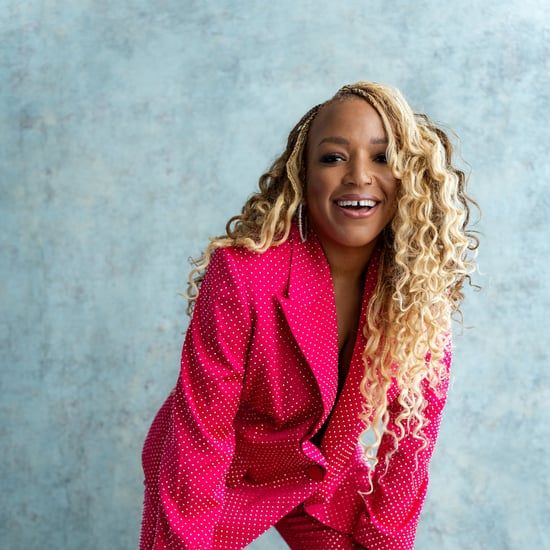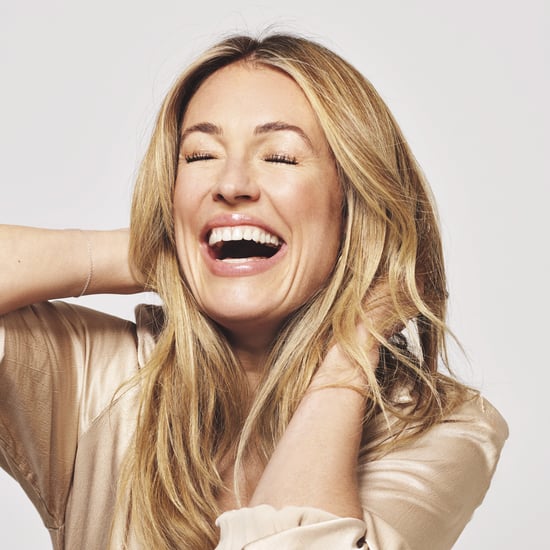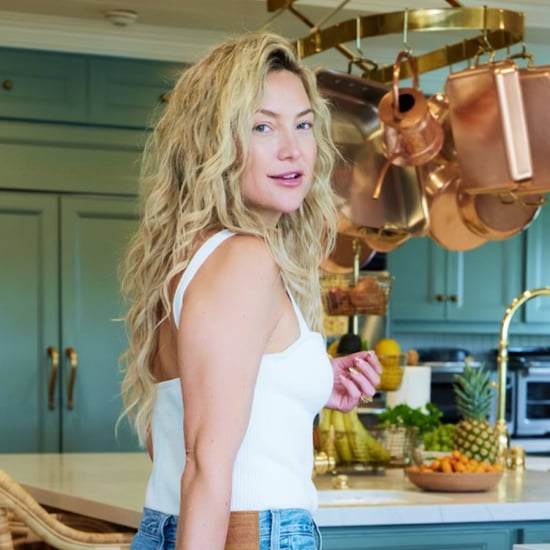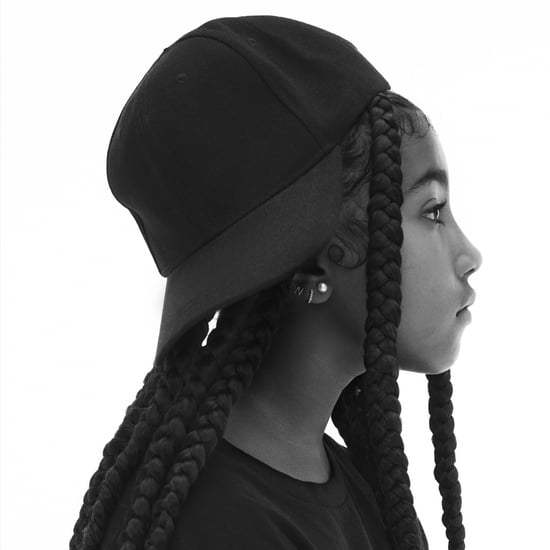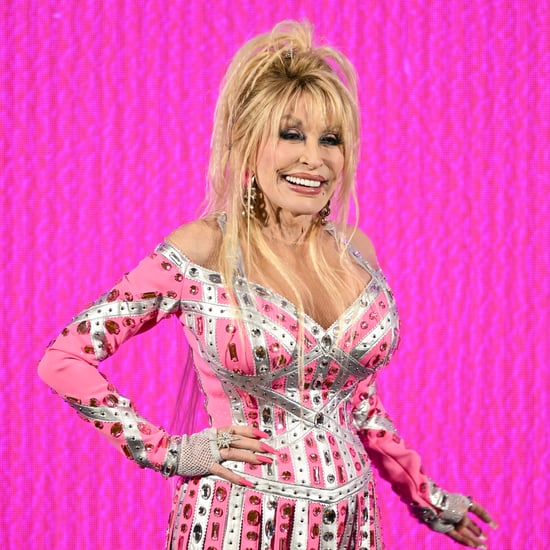Jamie Chung on Asian Representation and Lovecraft Country
How Lovecraft Country Inspired Jamie Chung to Become Her Own Storyteller
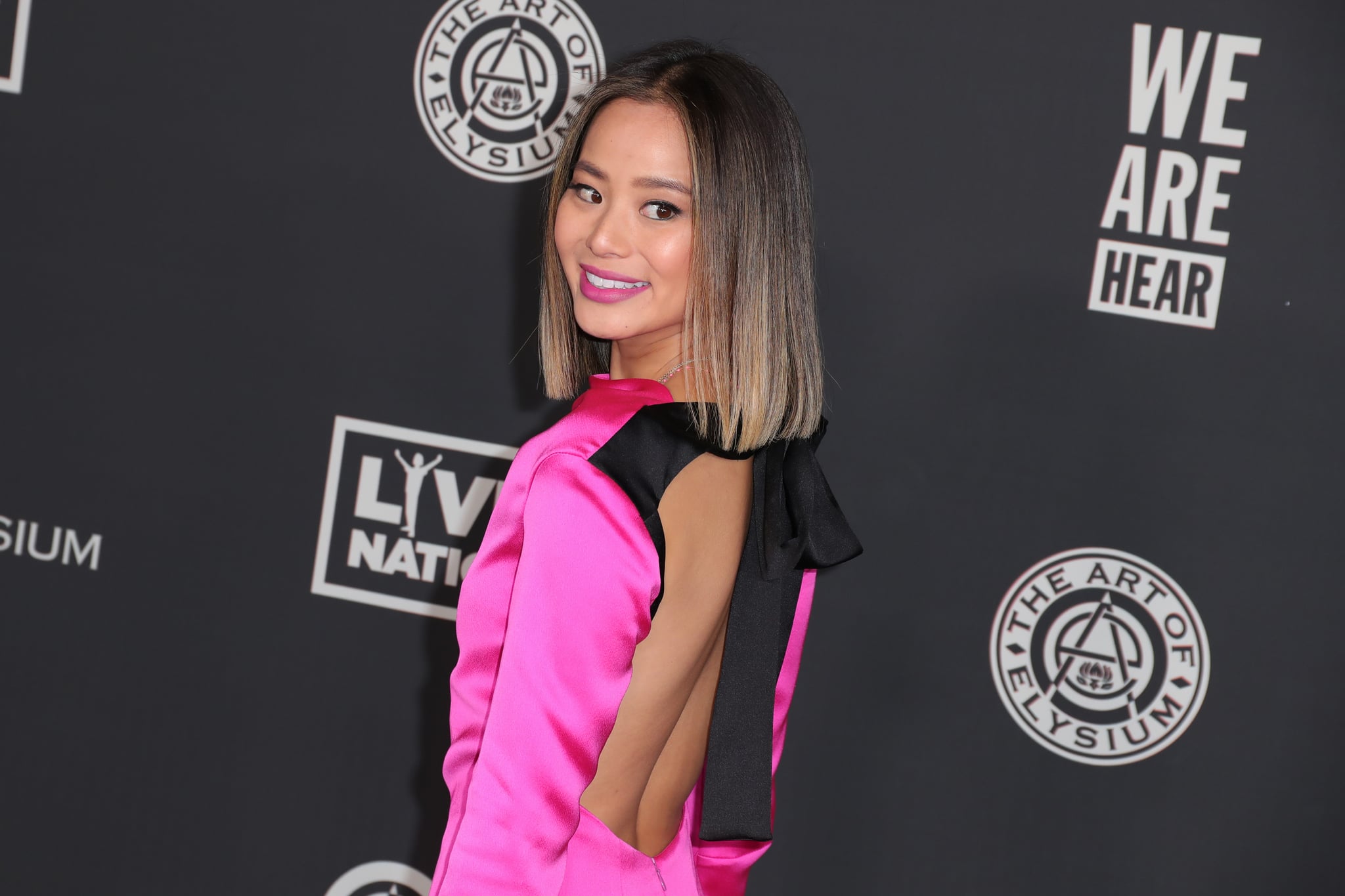
Image Source: Getty / Leon Bennett
Last fall, Jamie Chung wowed audiences of HBO's Lovecraft Country as Ji-Ah, a young Korean nurse who falls for US soldier Atticus Freeman (Jonathan Majors) during the Korean War. But her performance wasn't just moving for viewers. In fact, playing Ji-Ah — a supporting role Jamie describes as "the dream" and her most challenging yet — had such an empowering impact that she was inspired to pitch (and sell!) her own show about growing up Korean American. It wasn't just about being cast in Lovecraft Country in such a rare part as an Asian American actress that moved her; it was about honouring her heritage and spotlighting the often forgotten history of the Korean War, from a woman's perspective no less. While the actress tells POPSUGAR her upcoming show is still "in very early stages," she admits she's quite excited. As Jamie steps into the next chapter of her career, it comes as no surprise that she continues to centre Asian American stories in her work.
As a Korean American woman, and as a former teen who was obsessed with celebrity culture and had big media dreams, it's easy to remember the few AAPI in Hollywood during my younger years — particularly the ones who not only spoke out about the injustices they'd experienced, but also those who were immensely proud of their cultures. Chung, the reality-star-turned-actress who also happened to have a striking sense of style, stood out to me as an outspoken voice — as one who wasn't afraid to talk about the lack of representation and the stereotypical, token Asian roles we saw time and time again in films and on TV.
"Now we are the storytellers in the writers' room . . . Before it was just — I hate to say it but it's true — a nonminority male perspective of what it's like to be Asian American in America."
Recently, Jamie signed on as this year's ambassador for HBO's fifth annual Asian Pacific American Visionaries (APAV) film competition, a program that provides opportunities for up-and-coming AAPI filmmakers to showcase their own unique culture and stories on screen, rewarding three winners cash prizes and the chance to have their films premiere on HBO and stream on HBO Max.
When it comes to AAPI representation in the industry, Jamie grapples with the gratitude she feels looking at how far we've come, while also expressing disappointment in how much more there is to be done. But as she repeatedly comes back to during our conversation, "the only way it begins is with the storyteller," and becoming our own storytellers brings us a step closer to authentic representation of our narratives in media. The actress chatted with POPSUGAR about elevating the stories of emerging filmmakers through HBO's APAV program, playing Ji-Ah in another season of Lovecraft Country, speaking up about the lack of Asian American stories and voices, and combating the horrific rise in hate crimes against Asian Americans. Read on for our full chat ahead.
POPSUGAR: Throughout your career, you've always been vocal about representation, or rather the lack thereof, in Hollywood, and I imagine that's not an easy thing to do — what has inspired you to speak up and use your voice?
Jamie Chung: I think it comes with confidence. A lot of Asian Americans experience imposter syndrome, always feeling like, "You don't really belong here. This isn't your country. You're lucky to be here, you should work really hard and bite the bullet." It's really unfortunate, but that's the way I was raised, to just keep my head down, do the work, and carry on. That carried into my film and television career when I was just starting out. I was just so grateful to be here and was not going to stir the pot. I was really appreciative, but not really standing my ground on what I think.
So now we are the storytellers in the writers' room. There's a huge difference in being able to write our own stories and be involved in the process of storytelling, before it even reaches a studio or a script or before we shoot anything. Before it was just — I hate to say it but it's true — a nonminority male perspective of what it's like to be Asian American in America. I was so scared to say anything, but now, once you're given a microphone or when anyone is interested to hear your perspective, it's such a powerful moment because it's like, "Oh wow, you really care what it's like," or "You do want this story to be more authentic." It came with building that confidence and having the body of work to stand behind. So it's through storytelling and having the platform, but also programs like HBO Visionaries I think will really help amplify our voices and stories.
PS: Tell me about your work with HBO Visionaries and why it's so important to you.
JC: Of course. This is the fifth year that HBO has sponsored the APA Visionaries, which is a short-film competition. We talk a lot about, "How do we amplify Asian American voices? How do we give them the platform?" And this is the perfect way to do it. If your film is selected, it's streamed on HBO and HBO Max. It has the prestige of being on one of these streamers or channels, and it's an authentic way to allow artists to share their perspective and their stories. It's fantastic. After Lovecraft [Country] had aired, [HBO] asked me to become the fifth ambassador, and of course I jumped on it. This is a great opportunity for AAPI to showcase their work and hopefully kickstart their careers. I really do wish that more studios would do the same thing, but very happy to be a part of this one.
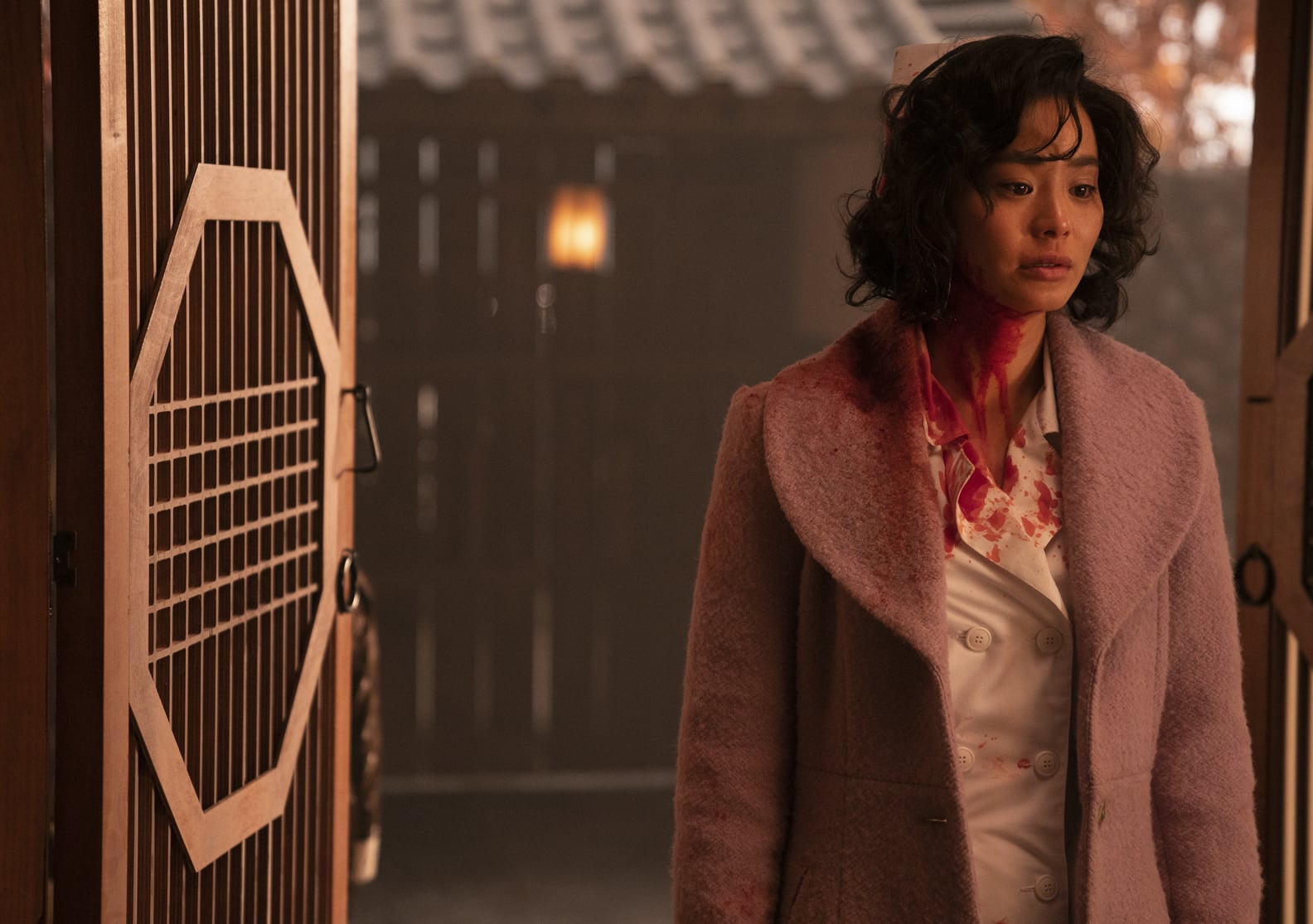
Image Source: HBO
PS: Speaking of Lovecraft Country — congratulations on the SAG nominations by the way! — I know you've talked about how rare it is for an Asian American woman to be cast in this type of complex, nuanced role that we saw in Ji-Ah. What was it like to play her?
JC: Well, we have Misha [Green] who is a brilliant woman. She really wanted to tell the story from this character's perspective. There's tons of movies about the Korean War, but who is telling the story? It's usually the white soldiers telling the stories of their experience in Korea. So to be able to have this platform as a Korean American, to share the story of what it was like to be a woman during the Korean War — I mean, yes she's a kumiho (a Korean word defined as a nine-tailed fox spirit), but still, those details aside . . .
It's so powerful. It's one of the first I've seen on television. It's so unfortunate that it's 2021 and this is one of the firsts for me. I think that's just a reflection of how this is just the beginning for Asian Americans in film and television storytellers because there's so many firsts. I just thought it was so important to play all the nuances, all the complex layers and conflicts of what it's like to be on one side during the Korean War, or even a woman or the nuances of what it's like to have shame and needing validation from your mom. You know what I mean? All these cultural nuances, it was very important and I'm so grateful that I was able to play it.
PS: What was it like to see the response to your performance, particularly in the episode focussed on Ji-Ah's story?
JC: What was really lovely was that it was a lot of other minority groups that were giving the shoutouts. Of course, my AAPI fan base was so supportive and proud, but what really got me was people who are not Asian American that were like, "Wow, I had no idea." To have a lot of non-Asian Americans come forward and say that they were so moved, they empathize, and they could, in a way, relate, but also watch in horror that this happened, it's pretty powerful. There's so much history to be learned in this show. It's very important to understand the history in order to understand our generation, who we are, and who we represent. I just wish that it had more of a reach, but I'm grateful for the ones that have supported it.
PS: I know we don't have confirmation of a second season yet, but have you been a part of any conversations that might suggest there'll be another? Are there any updates you can share?
JC: It's so funny. I spoke with Misha and she was like, "No," and she was being very aloof about it, so I still don't have confirmation even though I've read about the rumours. But I would be so on board. This cast, not even the cast, but the whole production and the writers . . . When you work with people who care a lot about their job and the quality of work that they put out, it's a beautiful thing. There wasn't a lot of small talk on set or in between takes; [the cast] took their work very seriously. But as soon as [the directors] called action, [the actors] were present. The most gracious thing you can do as an actor is to give and just leave everything on the table, take after take after take. I would work with these people in a heartbeat. They're some of the finest artists I've ever worked with.
PS: You talked about how this is just the beginning for Asian Americans in film and TV. I think in recent years, especially following the popularity of Crazy Rich Asians, we have seen more Asian American casts and talent emerge, but I'm curious — as someone who's in the industry, do you personally feel like you've seen any change or progress?
"As an artist, you don't want to do the work for the accolades, but unfortunately, it matters. It's a catalyst to more stories for people of colour."
JC: Yes and no. I think people are giving Asian American stories an opportunity, and within the last year we've seen a lot of nonscripted shows featuring Asian Americans pop up. I don't know if that's exactly a step forward in the right direction, but it is certainly breaking stereotypes, which is a great thing. Certainly, there's more interest, but here's a great way to gauge it: when we celebrate the best of the best — best of the best performance, best of the best of a show — it's really telling to see who's nominated for those kinds of things. It shouldn't matter to get these accolades and, as an artist, you don't want to do the work for the accolades, but unfortunately, it matters. It's a catalyst to more stories for people of colour, so these accolades and these award nominations sadly do matter. That's the only way we'll continue to get more shows being made. It's all a business, right?
It's a step in the right direction. We're given a little bit, a crumb, and they're like, "You should be thankful," and then it's just back to the same bullsh*t. A great example is the Golden Globe for best supporting actress or best lead actress in a drama. There was not one single person of colour in either of those categories and, this last year, we've seen fantastic storytelling from people of colour. And not just because they're people of colour, but because there were great f*cking performances, you know what I mean? We still have a long way to go. Although we're in the right direction, I don't think that we're making great strides. I do think that people are trying, but we have a lot of catching up to do and it's just not fast enough, to be quite honest.
PS: Let's talk about the horrifying rise in hate crimes against Asian Americans these days. You shared on Instagram that your own mother had a personal experience — what would you like to share with members of the Asian American community who have experienced this firsthand or are constantly in fear of encountering them?
JC: I think what's most important, especially with our community, is speaking up about it. We're so conditioned to — like I said earlier — keep our heads down, not complain, not say anything, or make waves. But you need to speak up. If someone has experienced violence plainly because they are Asian American, which is f*cking terrifying, say something. Report it, make noise, tell other people. I don't think it's a time to be quiet anymore. And I'm not saying that we've always been quiet. Our activists have certainly been vocal and active, but these stories need to be heard. Heard, but also not questioned or glazed over. Because this occurred when the SARS pandemic happened. Hate against Asian Americans, there's nothing new certainly, but it's time that it f*cking stops. And how we do that is sharing these stories and we validate them, don't question them. Let's start the process of change and education. I think that what's happening is disgusting, but that's the only way that we move forward because we can't let this continue, it needs to stop. I've never seen anything like this, but it's a time that we do come together. What's great is that our communities come together, and we have a lot of support from other communities as well.

